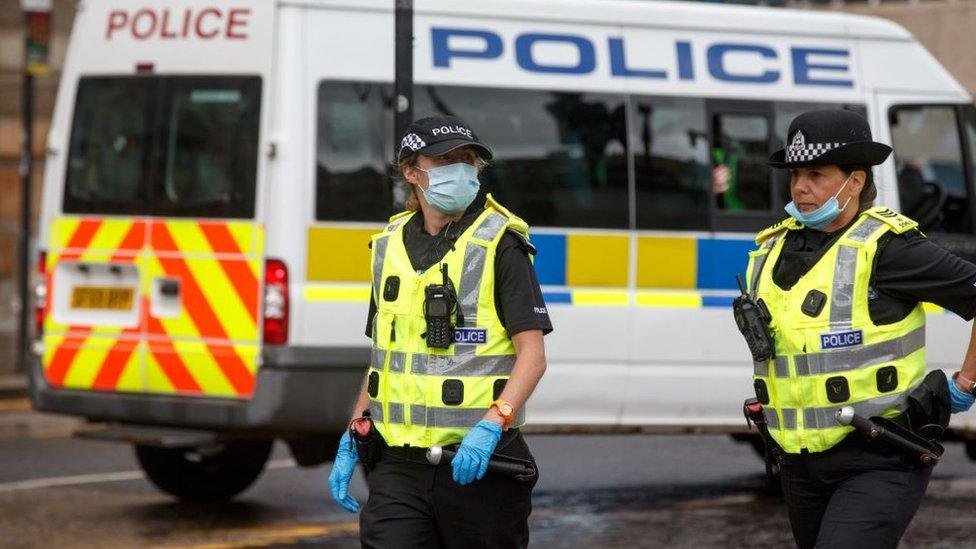Covid in Scotland: Police reveal excuses for travel ban breaches
- Published
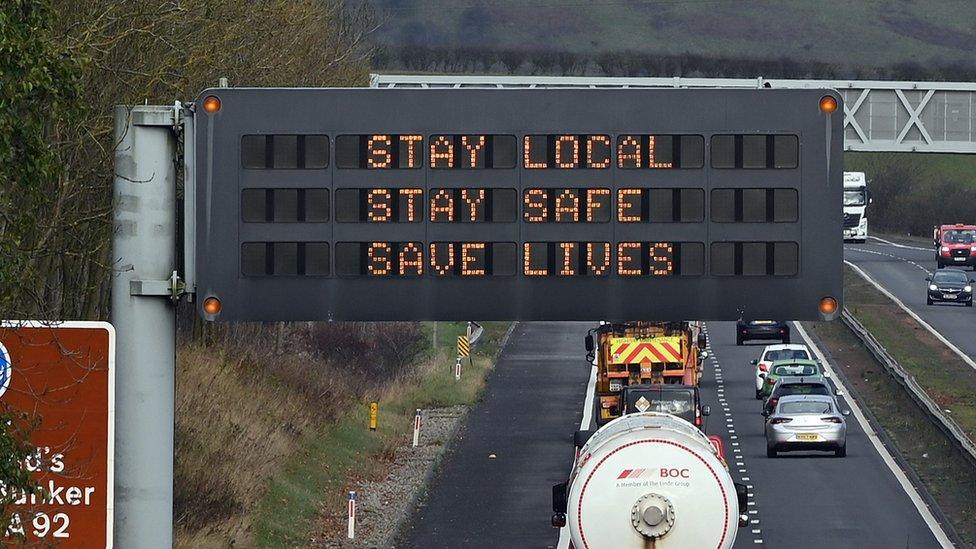
Many of the people who breached coronavirus-related travel restrictions were hillwalkers and campers, according to police reports obtained by the BBC.
The documents also reveal some offenders listed ghost-hunting, boredom and takeaways as excuses for why they were outside their council areas.
Police Scotland were given the power to fine people breaking strict new travel rules on 20 November last year.
Officers have since issued more than 900 travel-related fines.
Fines start at £30, doubling to £60 if they are not paid within 28 days. Repeat offenders can face fines of up to £960.
Until this month most of the country had been in lockdown since Boxing Day with a "stay at home" message put down in law.
Police Scotland has regularly posted figures on travel-related breaches and fines, external since then.
However this is the first time comprehensive details on the nature of these incidents have been made public.

The anecdotal accounts were listed within internal weekly reports for Operation Talla - the name for Police Scotland's response to the coronavirus pandemic.
Until January these internal briefings had only listed details of illegal house parties attended by officers.
The police documents, obtained by BBC Scotland through a Freedom of Information request, included these incidents:
Angus: A man travelled through Aberdeenshire and into Angus to climb Mount Keen. He called the police and mountain rescue when he got into difficulty. He was issued with a fine for exposing them to "significant Covid risk".
Dumfries: Officers stopped a man in Stranraer who was planning to board the ferry to Northern Ireland to place a bet.
Fife: Police found two adults and 15 children camping as part of a club.
Highland: Police attended Glen Nevis following reports of a vehicle rolling down a river bank into the River Nevis. Vehicle belonged to a person who had travelled from a different council area.
Lothians: In North Berwick officers found three men in a parked car who had travelled outside their area. After finishing work they had driven to get a takeaway as they were "bored".
Renfrewshire: Three vehicles containing eight people from five different households arrived at derelict premises for the purposes of ghost-hunting. All of them were from outside the council area and issued with fixed penalty notices.
Tayside: Police received a report of a man chasing women at a local beauty spot in Perthshire. The man told officers he had broken travel restrictions as he had recently experienced a "spiritual awakening".
Many of the anecdotal accounts from officers related to hillwalkers travelling to climb hills such as Ben Cruachan, Ben A'an, and Conic Hill.
The latest police figures suggest such travel-related breaches were already on the decline before the change in legislation on 16 April that eased travel restrictions, external.
However it is highly likely the number of actual breaches since January is far higher.
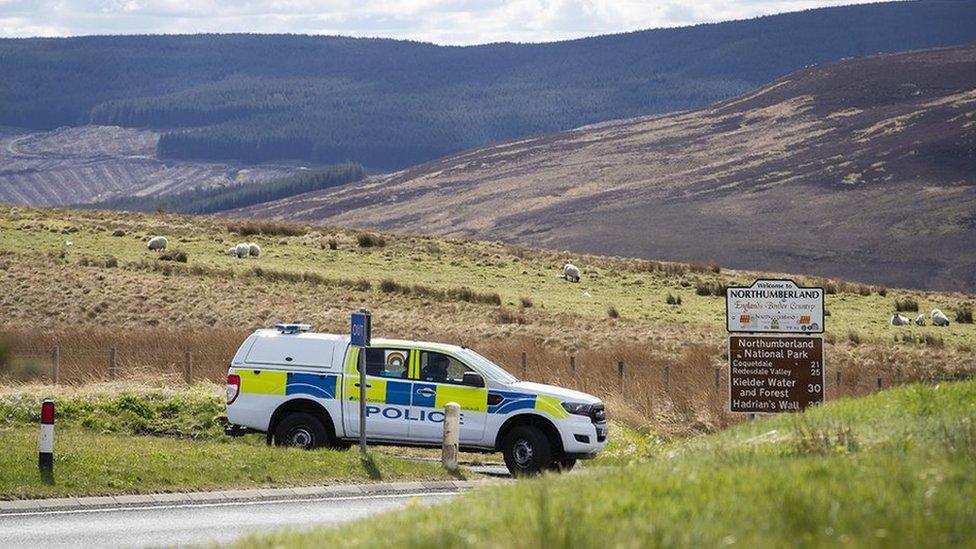
Police Scotland said patrols would be stepped up but road blocks were not envisaged
When they received their new powers in November, Police Scotland made it clear that they would not be routinely stopping vehicles or setting up road blocks.
The majority of offenders were only caught by officers undertaking their daily duties.
House parties continue
The latest Police Scotland documents also revealed that officers were called out to hundreds of illegal house parties every week since the beginning of January.
Police were given the power to break up house parties, external contravening social gathering rules on 28 August last year.
Since that date, officers have been called out almost 8,000 times.
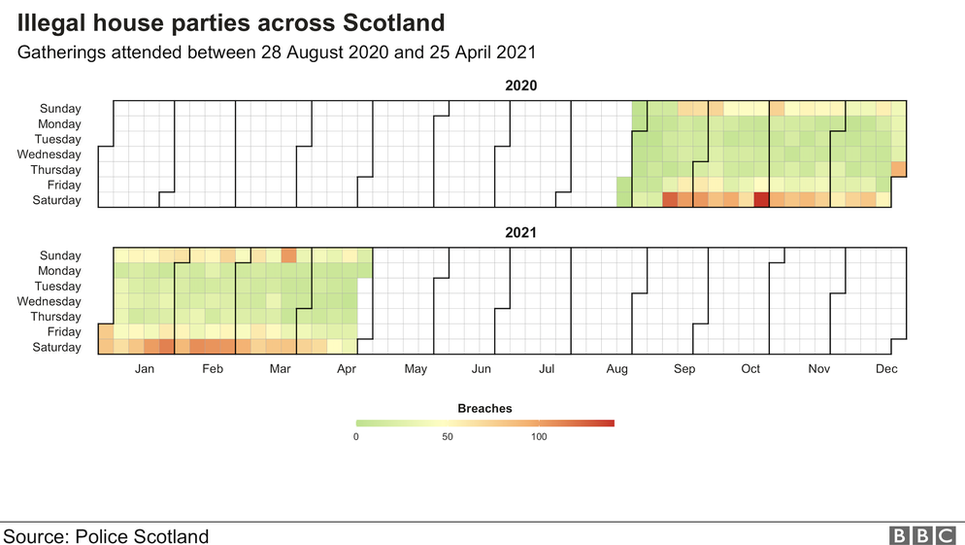
However, the force has suggested the number is likely to be greater as house gatherings are typically under-reported.
Under-reporting can occur if officers were not assigned, or attended several hours later and did not enter the premises.
Listed incidents included:
Borders: Police attended a gathering where multiple vehicles were found performing "donuts" and racing manoeuvres such as "drifting".
Edinburgh: 10 men from different households rented a short-term let to watch football. They refused to accept police advice and all 10 were issued fines.
Fife: Following reports of a loud party at a house, attending police found 20 people within an inflatable pub in the back garden.
Tayside: A rave with a live DJ, drones and 70 people in attendance was reported to police.
Fife: Occupants told police they were alone in the house and not having a party. Officers subsequently found a dozen of their friends hiding in their garden shed.
The police data does suggest the number of callouts has decreased nationally, and in the majority of council areas.
However despite this decline of callouts, the actual proportion of gatherings that are deemed to breach coronavirus legislation remains high in many areas.

For example, 85% of all April callouts in Edinburgh still resulted in fines being issued.
And in Glasgow and Ayrshire that number was 93% for the same month.
The data also revealed that 11,383 fines have been issued, and 1,431 arrests made, as of 26 April.
Assistant Chief Constable Alan Speirs said: "Our approach throughout the pandemic has not changed. Officers will engage with the public, explain the legislation and encourage compliance, but will not hesitate to use enforcement as a last resort.
"This approach will remain as, hopefully, restrictions continue to be eased over the coming months and we move back to a more normal way of life."


Related topics
- Published17 December 2020
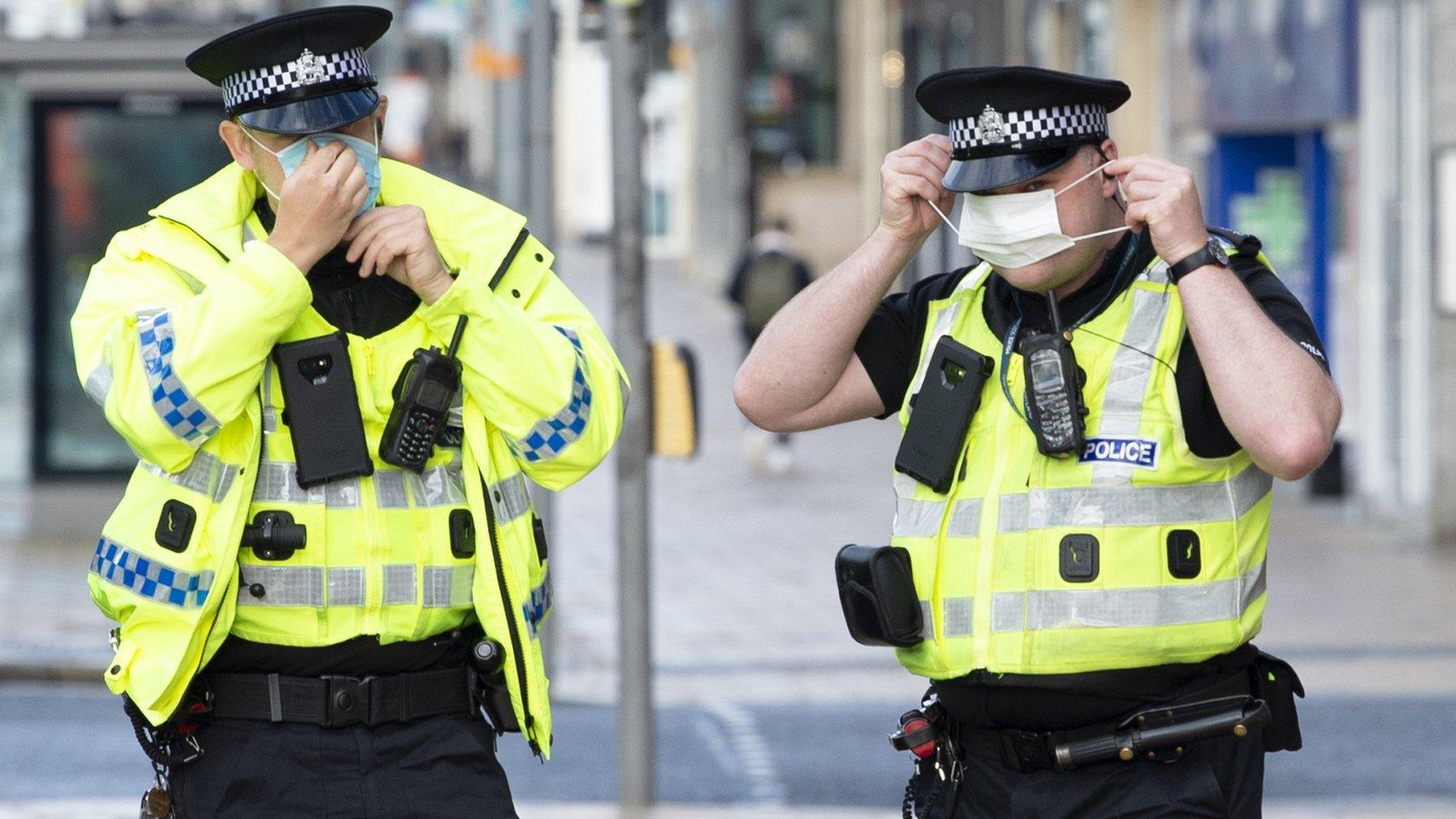
- Published28 October 2020
